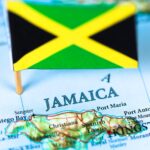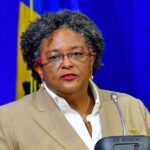A Trinidadian is among five candidates nominated for the post of Inter-American Development Bank (IDB) President. On Friday, former IDB official Gerard Johnson was nominated by Planning and Development Minister Penelope Beckles, who serves as this country’s representative on the IDB’s Board of Governors. In her statement on the nomination, Beckles claimed that Johnson’s background and over 20 years of experience with the IDB would make him the ideal candidate for the position.
“We need a President who has the ability to hit the ground running. A President who knows our region, and our people. A President who has a deep appreciation for the nuances in our culture across the Hemisphere,” Beckles said.
“With Mr Johnson at the helm, I am indeed confident that the Bank will be effectively guided to mobilise the required resources and develop targeted solutions for reigniting the much-needed growth in the Hemisphere,” she added. In a brief telephone interview with Guardian Media, former Government minister Robert Le Hunte, who took up the position of executive director at the IDB in July, noted that Johnson was nominated with the support of the four other English-speaking Caribbean countries that are members of the IDB-Barbados, Jamaica, the Bahamas, and Guyana.
“Mr Johnson is a person who has worked in the institution for a number of years and has spent his whole life in development financing,” Le Hunte said. Le Hunte noted that if successful, Johnson could prove instrumental in helping this country and regional neighbours in obtaining financing to meet their United National sustainable development goals in the next seven years, which are estimated to cost over US$25 billion. “I think it is important for our region that we have representation at the highest level of the IDB,” he said. Asked about Johnson’s chances of success, Le Hunte said that he has already received favourable feedback from Central American representatives after making his presentation along with the other candidates, this weekend.
“Of course, his chances of winning would depend on us gaining momentum with other countries. We have held discussions with other members from the Central America region where Mr Johnson worked and we feel that they are favourably disposed,” Le Hunte said.
The election comes less than two months after former IDB President Mauricio Claver-Carone was removed by the organisation’s executive board following an investigation into his allegedly inappropriate relationship with a subordinate. Besides T&T, Argentina, Mexico, Brazil, and Chile have also submitted nominees for the post. Johnson and the other candidates were interviewed by representatives from the bank’s 48 member states on Saturday ahead of the election next week. The winning candidate, who will serve a five-year term, must obtain the majority of voting power from member countries and receive support from at least 15 of the 28 regional members. The United States holds 30 per cent voting power, followed by Brazil and Argentina with 11 per cent each, and Columbia and Chile, who each have a three per cent stake.










